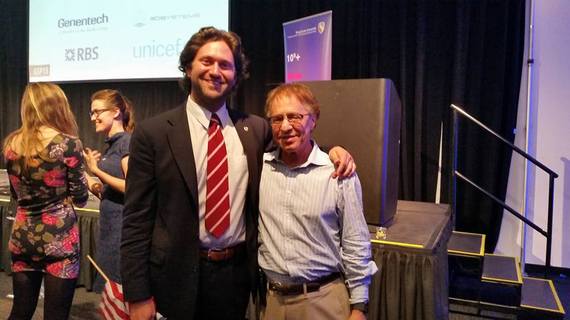[Author's Note: As a participant in Singularity University's Graduate Studies Program this summer, I have decided to further engage the material by writing a letter to some of our speakers, drawing on the lectures as well as the personal context in which I heard them. These letters are my attempt to increase comprehension while sharing a glimpse of #GSP15 with others.]
Dear Ray Kurzweil,
You connected Singularity University to my work with one simple insight: stories were the first invention. Life is pretty short in prehistoric times if the story of the lion behind the rock is not effectively communicated.
My passion is not for technology for technology's sake, but for people and for the power of technology to unlock our potential as a community.
When you speak of your confidence that we can change the world with our intelligence augmented by technology, I think about the immediate applications possible today in my work: how our social networks can be leveraged to help homeless people reconnect with their loved ones.
As prices fall and the capacity of devices increase, the pace of change itself accelerates, a concept you describe as the law of accelerating returns. Moore's Law may hold court today, but you predict it will end in 2020 as the shrinking size of transistors on a chip's logic boards reaches the size of a few nanometers. [Did I understand this correctly?]
I wonder what this approaching convergence between humans and computers will mean for our ability to empathize with each other. You spoke of how we could download others experiences in real-time, or search for the perfect witticism as we see Google CEO Eric Schmidt approach.
But how will this create divisions within our communities as those who wield and fathom these changes mix with those who don't?
And how will human relationships change if we are constantly changing our looks? Will it negatively impact our ability to trust and confide in one another?
Together, I hope we can create a more cohesive together for tomorrow than the one we experience today.
In the meantime, allow me to express my gratitude to you for Singularity University. The faculty' and staff's commitment and confidence in us helps me believe in myself each day.
And thank you for engaging my question around your faith and spirituality. While religious creeds (and governments) seems to be seen as an occasional inhibitor of technological progress, I believe taking a moment to share our value-systems will exponentially enhance our ability to work together for the betterment of humanity.
Exponentially, your friend,

